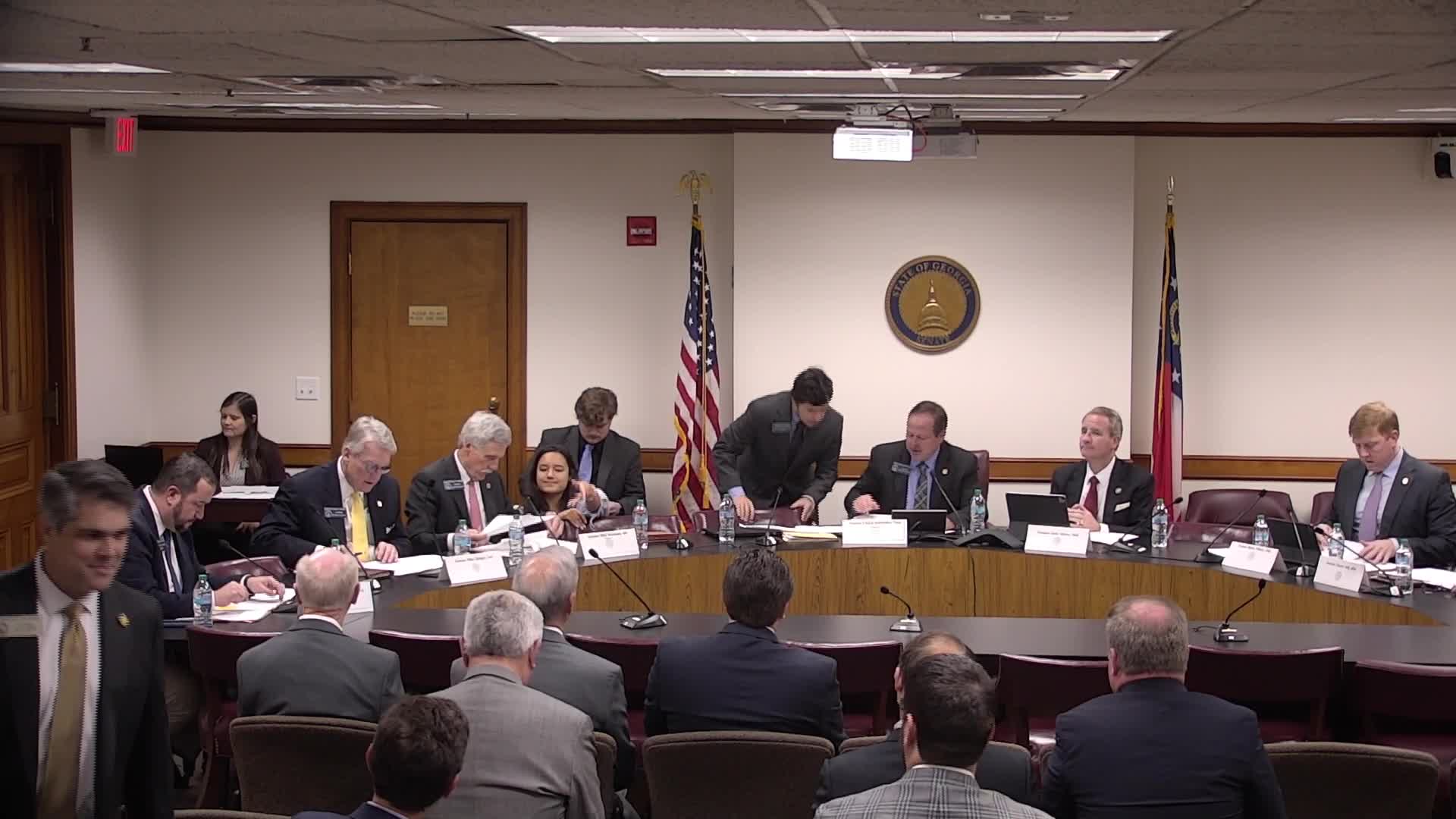Senate committee advances Safe Storage Act after trimming tax provisions
Get AI-powered insights, summaries, and transcripts
Subscribe
Summary
A Senate Finance Committee substitute to HB 79 (LC51238S), the Safe Storage Act, passed after lawmakers removed a $300 storage-related tax credit, retained a $300 tax credit for firearm safety instruction, shortened a sales-tax holiday and struck a provision tied to a one-time lifetime credit record-keeping rule.
A Senate Finance Committee substitute to House Bill 79, called the Safe Storage Act (LC51238S), moved forward after the panel voted to amend the measure and approved the substitute as amended.
The substitute removes the $300 tax credit that had been tied to firearm storage purchases but keeps a $300 tax credit for completion of a firearms safe-handling instruction course. The substitute also shortens a sales-tax holiday for ammunition, gun safes and related accessories from 11 days to four days and preserves a sunset provision included earlier in the bill.
Committee members debated whether language in the bill that limited the tax credit to a lifetime, one-time use should remain. A motion to strike parts of the bill described in the meeting as “lines 47 through 50 and lines 55 through 56” passed; lawmakers said removing those lines would eliminate the statutory basis for the Department of Revenue (DOR) to maintain a list of prior claimants. The amendment mover stated, “the amendment is to strike lines 47 through 50 and lines 55 through 56.”
Austin Gibbons, chief of staff at the Georgia Department of Revenue, told the committee that the department still needs taxpayer identities for preapproval and administration of any capped credit and that DOR’s preapproval and audit processes would remain in place to prevent fraud. He said preapproval would generate documentation that a taxpayer had been approved for the credit.
Committee discussion also addressed a statutory cap referenced in the bill and the mechanics of how receipts and audits would work. One committee speaker noted a $10,000,000 cap on the program in the discussion.
Opposition to parts of the compromise was voiced on policy grounds. Senator Estevez said adding a sales-tax holiday for guns undercut the bill’s stated goal of promoting responsible firearm ownership.
The committee approved the amendment to strike the listed lines (members recorded three opposed during that vote) and later approved the substitute to HB 79 as amended (members recorded two opposed on final passage). Both votes were announced on the record during the meeting.
Next steps: the bill will proceed according to normal committee and legislative procedures with the committee’s substitute version and the recorded amendment.
